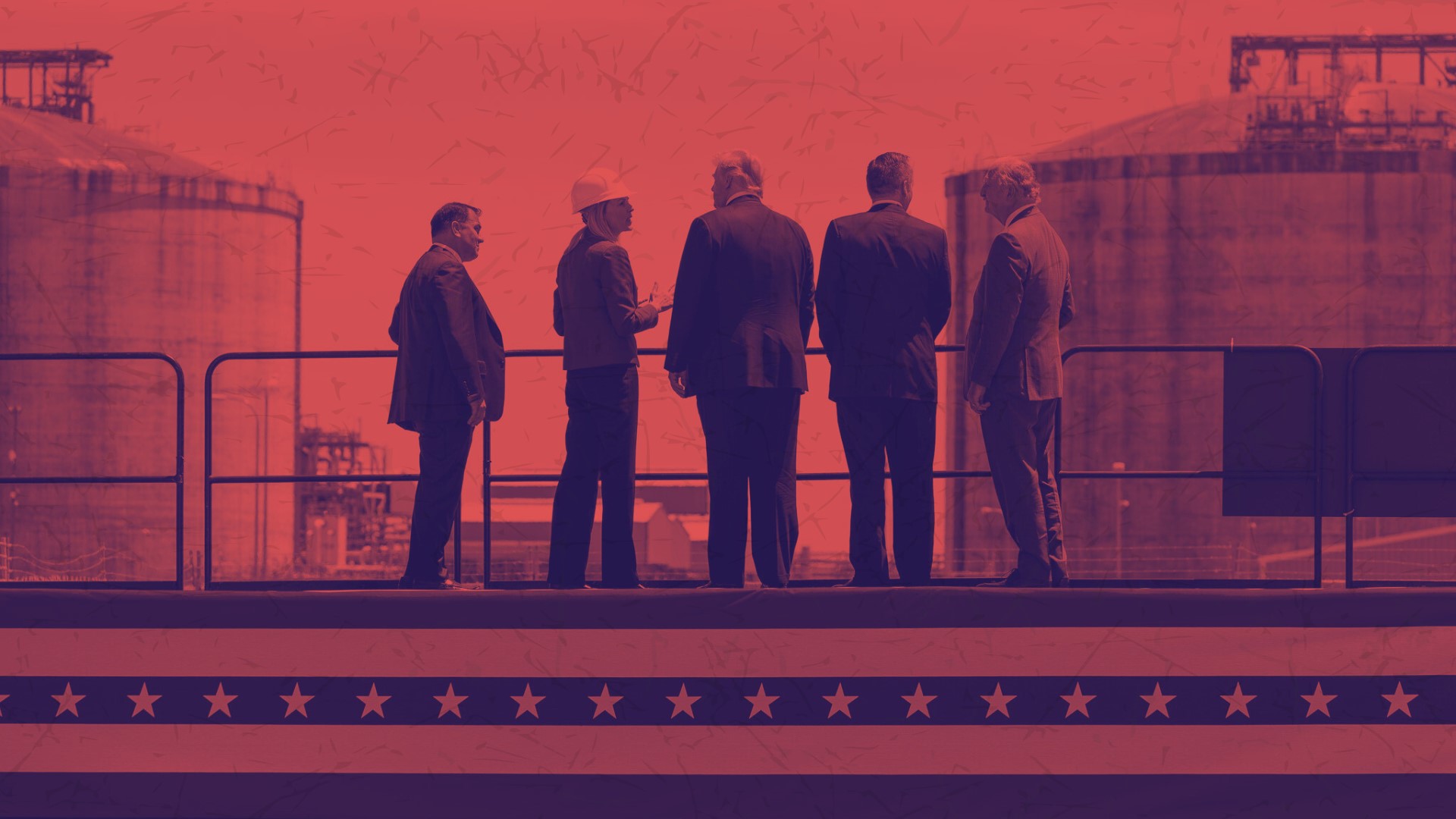Is it in the public interest to export gigantic ships full of fracked liquefied “natural” gas (LNG)? To tie U.S. consumers to the volatile price swings of the global market controlled by Big Oil? To waste billions of dollars on costly fossil fuel infrastructure during a climate crisis? To inundate coastal communities with air pollution? Earlier this year, President Biden asked the Department of Energy (DOE) to take a beat and answer these questions. Spoiler: The answer should be a resounding no.
DOE can only greenlight LNG exports if they are in the public interest (PDF)—and they’re clearly not. When President Biden paused LNG export approvals, he took a stand against Big Oil and asked DOE to review the law and the science before rushing ahead. But here’s the bad news: This week, a Trump-appointed federal judge in Louisiana issued an order telling DOE that it could not “pause” its decisions on LNG export terminals. The rambling order—replete with typos and bad reasoning—rapidly made headlines and fueled speculation that DOE’s public interest review could be stopped in its tracks.
But here’s the thing. Trump judges can try to create a stir, but they cannot change the law governing LNG exports or the science that shows LNG is a public interest disaster. The Biden administration still has clear authority to determine that LNG export projects are not in the public interest. It would simply be following the science to correct a pattern of recklessly rubber-stamping these dirty LNG mega-projects—and it should do so. This court decision only upends the formal “pause” on DOE’s decisions while the agency updates economic and scientific data to ensure it reaches a sound decision. DOE can still act carefully, listen to the public, and come to the right answer: More LNG terminals are not in the public interest.
We’ve seen a rash of bad decisions from Trump’s judges lately, from the Supreme Court on down. Big Polluters and MAGA Republicans are doing everything to defend the fossil fuel industry’s interests, lining their pockets at the expense of frontline communities and our climate. But people power and the truth still matter. Despite the Louisiana court order, the Biden administration’s DOE still has an unmissable opportunity to fully account for the climate, environmental justice, and economic harms that plainly show that LNG export facilities are not in the public interest.
A Quick Refresher on LNG
Let’s recap why LNG just is not in the public interest. The United States is the world’s largest exporter of liquefied methane gas, also branded as liquefied “natural” gas (LNG). America’s LNG export rates have skyrocketed since 2016, fuelling a rapid build-out of export facilities, particularly in the Gulf Coast. These LNG terminals leach harmful air pollution into the surrounding areas, poisoning frontline communities in southwest Louisiana and Texas. Meanwhile, the LNG supply chain spews out dangerous carbon and methane pollution that exacerbate the climate crisis.
That’s why it was a huge deal when the Biden administration announced a historic pause on new LNG export terminal applications (PDF) to non-Free Trade Agreement (FTA) countries back in January. This hard-fought outcome was a direct result of grassroots leaders and organizers in the Gulf South. And the decision showed that President Biden was willing to take a stand against Big Polluters.
At the time, the Biden administration explained that the temporary LNG pause would last until DOE undertook a review (PDF) of the economic and environmental analysis that informs if LNG export applications are in the public interest. Such a review was sorely needed. DOE last updated their economic and environmental analyses in 2018 and 2019—but since then, the United States has exported more LNG than ever before, with exports more than tripling. Domestic LNG prices have also drastically spiked. Meanwhile, the climate crisis is racing toward catastrophic tipping points and LNG’s pollution continues to harm nearby communities.
It’s no surprise, given the seedy alliance between MAGA and Big Oil, that spurious lawsuits would be filed to try to distract from the truth. In March, 16 Republican Attorneys General filed a motion in the U.S. District Court for the Western District of Louisiana requesting a stay on the LNG pause. But their arguments and claims that somehow there was an export ban in place did not really make sense. After all, pause or no pause, DOE is still legally required to make a careful public interest decision.
And that brings us to this week’s court order from a Trump-appointed federal judge in the U.S. District Court for the Western District of Louisiana.
What Does the Louisiana Court Order Actually Say?
The Trump-appointed judge issued a preliminary injunction, which is basically an early order freezing action on the president’s pause and restoring the status quo. This order required DOE to “unpause” and continue with evaluating pending LNG applications on a case-by-case basis. But let’s be clear about the scope of the judge’s order:
- It does not order DOE to issue any specific decisions or require the authorization of any new LNG export facilities.
- The order does not stop DOE from being able to rigorously update studies that evaluate the economic and environmental impacts of LNG exports, which informs DOE’s public interest determination.
Nothing in the order can change what the law says: that LNG exports can only proceed to non-Free Trade Agreement countries if they are in the public interest.
Let’s take a closer look at what the law says.

